Lagree vs. Power: What’s the Difference?
by Mal – Friday, 22. May 2020
Is Power the Same as Lagree?
We often hear this question at Velocity, and the answer is NO. In this article, we want to take the opportunity to explain the differences and why our unique concept is even better 😉
What is Power?
The Power workout is completely unique to Velocity – we combine slow controlled movements with bursts of cardio and badass music for a high-intensity, result-driven & energizing workout in just 45 minutes. Strengthening, toning, and enhanced flexibility of the body are some of the benefits of regularly practicing the method.
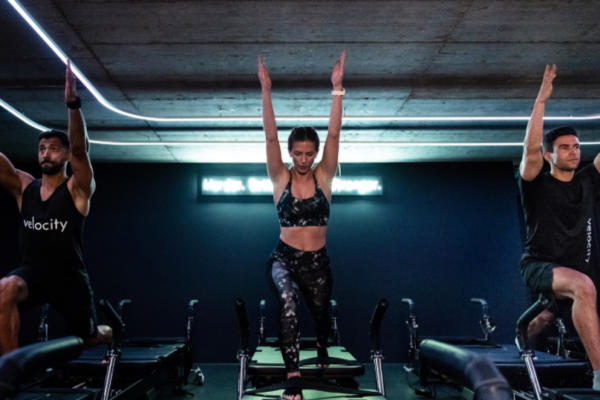
Power classes are not meant to be easy, they are designed to push through the limits in an environment and through a flow of exercises that are safe, supported, and provide a feeling of success once completed. Our classes can be customized for all fitness levels and fitness goals under the umbrella of strength training.
This efficient, full-body functional training program takes place on an XFormer machine.
The Xformer vs. the Megaformer
Both the Xformer machine used in Power and the Megaformer machine used in Lagree are brands of the reformer machine.
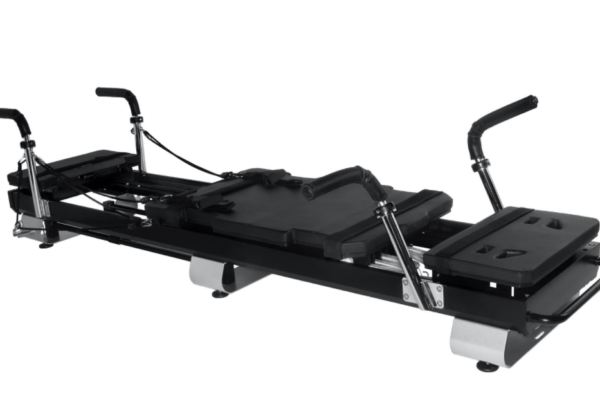
The Xformer is a resistance device that forces the user to work every muscle effectively, within its grid. Although it is a simple machine using the body as the source of power, it allows for over 200 different movements to target very specific muscles that are otherwise difficult to train. Proper spine stability, alignment, and core engagement are paramount to Power exercises.
Velocity was the first studio in Europe to have the Xformer, and others have quickly followed after discovering it through us.
Lagree, on the other hand, uses the Megaformer machine. Although the machines do similar things, Lagree requires Instructors and Fitness studios to follow their program and pay to become a licensed Lagree Instructor.
The Original Reformer Machine
The first person to create a Reformer machine was Joseph Pilates. Joseph Pilates, shown below, was a German-born immigrant to Britain and then America who devised the Pilates method as a new approach to exercise and body-conditioning in the early 1900’s.
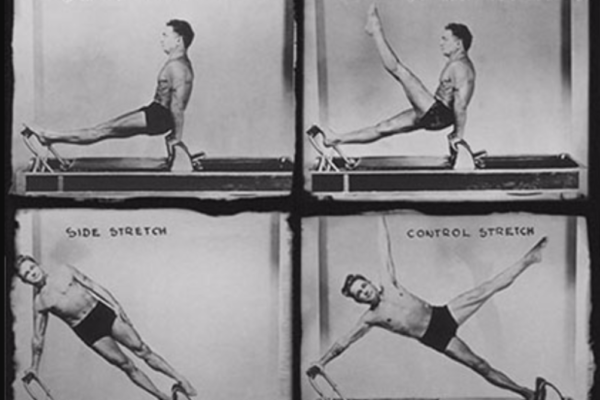
He was a sickly child who was determined to make himself strong and healthy. He started out doing this through body-building. Later, while he worked as a nurse in Britain during World War I, he began experimenting with attaching springs to hospital beds so that patients could start toning their muscles even while they were still bed-bound. In 1923, Pilates moved to New York City and opened the first reformer studio with his wife, and called the method ‘Controlology’. His method included the use of the reformer, referred to by him as an “apparatus”. Such were the origins of the first reformers – NOT Lagree.
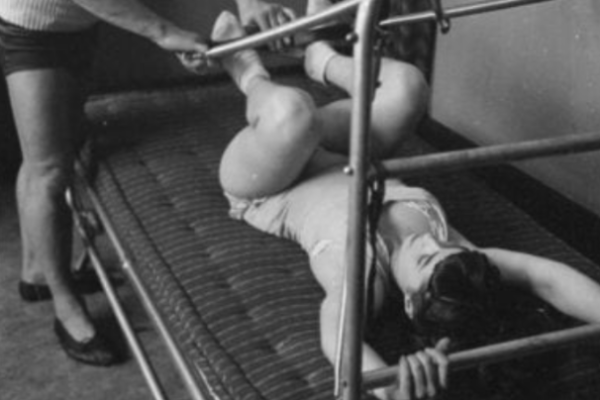
We Are Challenging the Monopoly
Although Lagree has patented their version of the reformer machine and tried time and time again to corner the reformer market, they have lost in numerous court cases against competitors like Xfomer, mostly due to the fact that they did not themselves invent the machine.
We proudly support those who challenge this monopoly. Challenge is, after all, in Velocity’s DNA!
So What Else Makes Power Different from Other Reformer Workouts?
The “Power Push”
The “Power Push” aims to bring your whole body or a specific muscle group to fatigue. This is unique to Velocity’s Power classes. These pushes are often added at the peak or at the end of a routine to really empty the tank. An example of a power push set we do in our classes is the “Killer Core” Power Push – a pack of 2-4 exercises that completely exhaust the abdominals, like burpees, mountain climbers, and a final plank hold all done without rest.
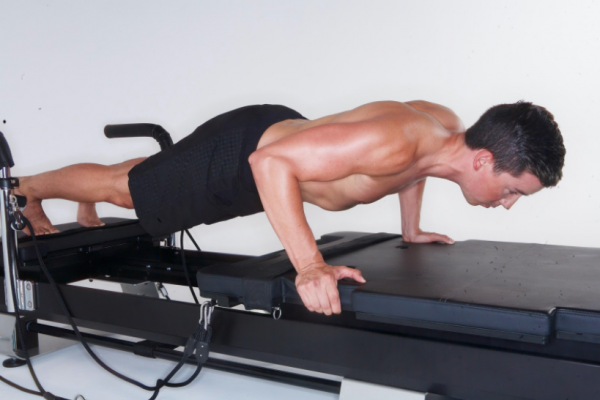
- Moving to the Music
Music is a VERY important tool in a Power class – it is imperative at Velocity. It sets the tone, the time, the pace, the feeling, and bridges a connection between you and the movement. The style of music an instructor chooses can also be the reason you connect with a particular coach. The goal is to have everyone move slowly to the beat of the music in unison – when it works, it’s fire!
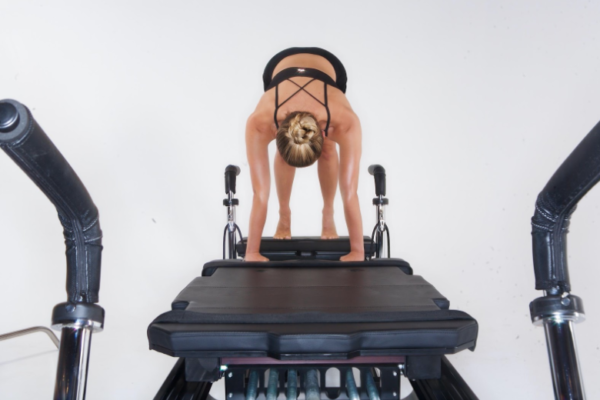
- The Velocity Power Philosophy
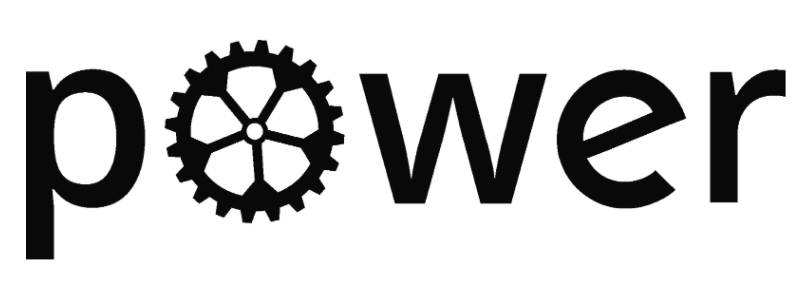
We practice the fundamental basics of ‘Time Under Tension’ and core engagement in a Power class. There are 9 Effective Elements to stimulate change in the body during a Velocity Power class and each is incorporated in every class.
- Resistance: an effective amount of force exerted during an activity, working against gravity, body weight and spring resistance with each movement
- Range of motion: never sinking into the joints, keeping the muscles “working” through the entire movement
- Speed/Tempo: Controlled – movements are without momentum, maintaining motor control, and firing more muscle fiber activation.
- Duration: at least 60 seconds focused per muscle group, firing fast-twitch (anaerobic) within 60 sec. of movement, slow twitch (aerobic) after 60 sec, approx. 2 min. for bigger muscles groups
- Body Alignment: Quality over Quantity, proper form/spine alignment, and execution of the movement, releasing tension in muscles which aren’t necessary for the movement
- Power Flow: The routine is designed so that the movements are smooth and flow comfortably on the machine and through the muscle groups. Movements are natural to the everyday movements of the body
- Mindfulness: Intention, focus, eye contact, authentic connection to the body, knowing when to push, when to modify, when to rest and when to challenge
- Interaction: Friendly, supportive, open communication in an environment that is safe, effective, and fun.
- Power Purpose: Where you feel it, what you feel and why!
In summary, power brings all the things that make a Veloburn or Velobeat class fun, into a full-body, muscle-shaking strength training that makes for a high intensity, low impact workout. If you’ve never tried a Power class, we hope you’re convinced to try one now. You won’t regret it – we promise!



Meet the New Faces Behind Our Power Team
/in Health, Lifestyle, Living in Zug, Living in Zurich, Power/by Casey3 Ways to Push Through a Tough Workout
/in Health, Lifestyle, Living in Zug, Living in Zurich, Power, Rides/by CaseyMeet Your New Power Coach, Julia
/in Health, Lifestyle, Living in Zug, Living in Zurich, Power, Rides/by Casey